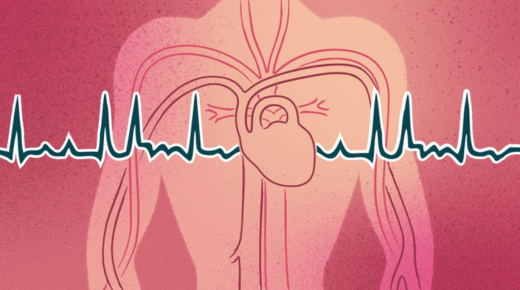1. Introduction to Dehydration and Atrial Fibrillation
Dehydration, a condition characterized by insufficient fluid intake or excessive fluid loss, may impact heart health and contribute to the development or exacerbation of atrial fibrillation (AF).
2. What is Atrial Fibrillation (AF)?
Atrial fibrillation is a common heart rhythm disorder characterized by irregular and often rapid heartbeats originating in the heart’s upper chambers (atria).
3. Effects of Dehydration on the Body
Dehydration can disrupt normal physiological functions, affecting blood volume, electrolyte balance, and cardiovascular function, potentially triggering arrhythmias like atrial fibrillation.
4. Electrolyte Imbalance and Heart Rhythm
Electrolytes such as potassium, sodium, and magnesium play a crucial role in regulating heart rhythm, and dehydration-induced electrolyte imbalance may contribute to arrhythmias.
5. Impact of Fluid Loss on Blood Pressure
Dehydration-induced reduction in blood volume can lead to low blood pressure (hypotension), compromising blood flow to vital organs including the heart and potentially triggering AF.
6. Dehydration and Blood Viscosity
Dehydration can increase blood viscosity (thickness), making it harder for the heart to pump blood efficiently, which may contribute to irregular heart rhythms like AF.
7. Effects of Dehydration on Autonomic Nervous System
Dehydration can activate the sympathetic nervous system and suppress the parasympathetic nervous system, disrupting heart rate regulation and increasing the risk of arrhythmias.
8. Dehydration as a Potential Trigger for AF
While dehydration alone may not directly cause AF, it can act as a trigger in individuals predisposed to arrhythmias, especially those with existing cardiovascular conditions.
9. Role of Dehydration in AF Recurrence
In individuals with a history of AF, dehydration may increase the risk of AF recurrence by exacerbating underlying cardiac abnormalities and electrolyte imbalances.
10. Recognizing Signs of Dehydration
Symptoms of dehydration include thirst, dry mouth, dark urine, fatigue, dizziness, and confusion, which may warrant prompt fluid intake to prevent complications such as AF.
11. Dehydration in Special Populations
Certain populations, such as older adults, athletes, and individuals with chronic illnesses, may be more susceptible to dehydration-related arrhythmias, including AF.
12. Prevention of Dehydration-Induced AF
Maintaining adequate hydration through regular fluid intake, especially during hot weather, exercise, illness, or medication use, may help prevent dehydration-related AF episodes.
13. Importance of Electrolyte Balance
Ensuring a balanced diet rich in electrolytes, including potassium, sodium, and magnesium, can help maintain normal heart rhythm and reduce the risk of dehydration-induced arrhythmias.
14. Hydration Strategies for AF Management
In individuals with AF, optimizing hydration status may complement traditional AF management strategies, including medication therapy and lifestyle modifications.
15. Hydration Monitoring and Education
Regular monitoring of hydration status and education about the importance of fluid intake can empower individuals to prevent dehydration-related health issues, including AF.
16. Collaboration with Healthcare Providers
Consulting healthcare providers for personalized hydration recommendations, especially for individuals with underlying medical conditions or taking medications, is essential for AF management.
17. Lifestyle Factors and Heart Health
Maintaining a healthy lifestyle, including regular exercise, a balanced diet, and avoiding excessive alcohol and caffeine intake, is crucial for reducing the risk of AF and other cardiovascular diseases.
18. Hydration in Hot Weather
In hot weather conditions, increasing fluid intake and avoiding excessive heat exposure can help prevent dehydration and reduce the risk of heat-related AF triggers.
19. Hydration and Medication Management
Individuals taking diuretic medications or other drugs that increase urine output should closely monitor fluid intake and electrolyte levels to prevent dehydration-related complications, including AF.
20. Personalized Hydration Plans
Hydration plans should be tailored to individual needs, considering factors such as age, weight, activity level, and overall health status, to optimize hydration and reduce the risk of AF.
21. Public Health Awareness
Raising public awareness about the importance of hydration for heart health and providing resources for monitoring and maintaining hydration status can help prevent dehydration-related AF and other cardiovascular conditions.
22. Research and Education Initiatives
Investing in research on the relationship between dehydration and AF, as well as educational campaigns promoting hydration strategies, can contribute to better AF management and prevention.
23. Importance of Early Intervention
Recognizing the signs of dehydration and taking prompt action to rehydrate can prevent complications and reduce the risk of AF and other cardiovascular events.
24. Hydration Guidelines for Different Populations
Guidelines for hydration should consider the unique needs of different populations, such as children, older adults, athletes, and individuals with chronic illnesses, to promote optimal heart health.
25. Conclusion: Hydration as a Cornerstone of Heart Health
In conclusion, maintaining adequate hydration is essential for preventing dehydration-related complications, including atrial fibrillation. By prioritizing hydration and adopting healthy lifestyle habits, individuals can reduce their risk of AF and improve overall heart health.




